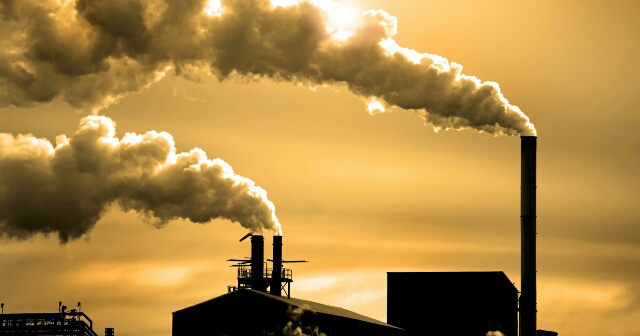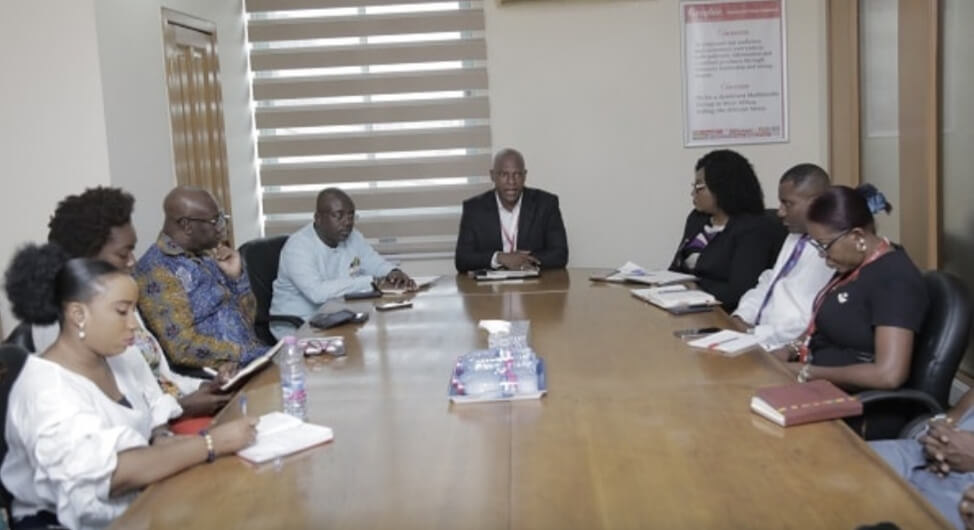

Nana Amuah Afenyi VI, Chief of Ekumfi Otuam and Mankrado of Ekumfi Traditional Area in the Central Region of Ghana, has expressed her disappointment and shock at plans by the Volta River Authority (VRA) of Ghana to construct a coal-fired power plant at the Ekumfi Traditional area to ease the erratic power supply in Ghana to solve Ghana’s Energy Crisis.
Speaking at her Silver Spring residence and Maryland base in United States of America (USA) she told “The Afrikan Post”, a Virginia-based Ghanaian newspaper that “Even though I understand the anticipation and eagerness of my colleague Chiefs and people of the area to see this happen because for them, the project would create jobs for the people to ease unemployment in the area, the health hazards from the project far outweighs its benefits”.

Nana Amuah Afenyi, one of the few female Chiefs in Ghana sometimes affectionately called King Peggy, is, therefore, appealing to the Government of Ghana to intervene to stop the project from going ahead since it will bring residents more health problems than ease their already precarious situation.
She said she is aware of the daily stress and hardship her subjects are going through as a result of unemployment but would not support the citing of a coal-fired power plant in the Ekumfi area because it will present serious threat to the safety of the community, threaten both water bodies including drinking water, the air quality of the community and even the fishes in the water.
Nana Amuah Afenyi, known in private life as Peggielene Bartels said in this era of climatic change and the fight against ecological destruction, it was surprising that Ghana should be pursuing coal-fired power plant at a time when even richer nations like the USA pand European states are phasing out power generation from coal-fired power plants.
The US that is far richer and technologically advanced with over 600 coal plants has started reducing her dependence on coal because of the health hazards and the desire to use clean energy.
The Ekumfi Mankrado was reacting to media reports that the VRA was planning to implement a coal-fired power plant in the Ekumfi area of the Central Region in collaboration with China to deal with the power problems facing the country which has notoriously been referred to as Dumsor by Ghanaians.
The Environmental Protection Agency (EPA) in collaboration with the VRA held a public forum to assess the environmental impact of the proposed coal-fired power plant at Ekumfi Aboano. The forum held in the Ekumfi District was attended by Chiefs, opinion leaders and the inhabitants of the five coastal communities that would be affected by the project.
The communities are Aboano, Immuna, Otuam-Kontankore, Kokodo and Sarfa-Npoano. The project, estimated to cost $1.5 billion will be financed by the Chinese African Development Fund and would be constructed by Shenzhen Energy over a five year period and is estimated to add 700 MW to the national grid.
Ghana, according to Nana Amuah Afenyi VI, is richly endowed and has the potential to become a solar power producer because of the vast savanna land in the Northern parts of the country; along the coastal belt, Ghana also has enough wind to propel windmills to generate power, she added.
She said Ghana has enough power generating sources like hydropower from Akosombo, Kpone and Bui, thermal plants in the Western Region and Asogli power plant in the Volta Region. In addition, she said, Ghana also has emergency power plants like the Osagyefo Barge in the Western Region and Karlpower plants in Tema in the Greater Accra Region.
These energy sources, Nana Amuah said, could generate all the energy needs of Ghanaians if good management practices are put in place for efficient distribution. “This is why I am in support of government’s efforts at collaborating with the Millennium Challenge Compact (MCC) of the US to restructure the Electricity Corporation of Ghana (ECG) to make it more efficient in the distribution of power in the country”, she said.
On the Health hazard that comes with the coal-fired power plant, she said coal plants as a source of electricity is under attack all over the world because of its threat to the health of communities wherever they are cited.
Research has shown that communities and workers of coal-fired power plants often suffer from ‘Black Lung’ or pneumoconiosis from breathing in coal dust. This results in shortness of breath and puts individuals at risk for emphysema, bronchitis and fibrosis Nana Amuah said, adding “black lung is now on the rise and is incurable”.
Beyond posing threats to communities and workers’ safety, pollution from the coal-fired power plant is linked to chronic illness among residents in communities they are cited. People in these communities stand the risk of developing kidney diseases, chronic obstructive pulmonary diseases such as emphysema and high blood pressure (hypertension).
Nana Amuah Afenyi said “mortality rates are also very high among coal-fired power plant workers according to health research.” Across the world, surveys conducted among workers and residents have shown that individuals living near coal-fired power plants are at higher risk for health problems than those who do not.
Nana Amuah Afenyi said she has been working for years to find companies that could go to the Ekumfi area to create jobs for her people but would not be jubilating such a project in her area because “with my experience in the US, I cannot support a project that would bring my people more health and environmental problems than the provision of a healthier and happier life.
Source: Afrikan Post
Oral Ofori is Founder and Publisher at www.TheAfricanDream.net, a digital storyteller and producer, and also an information and research consultant.



